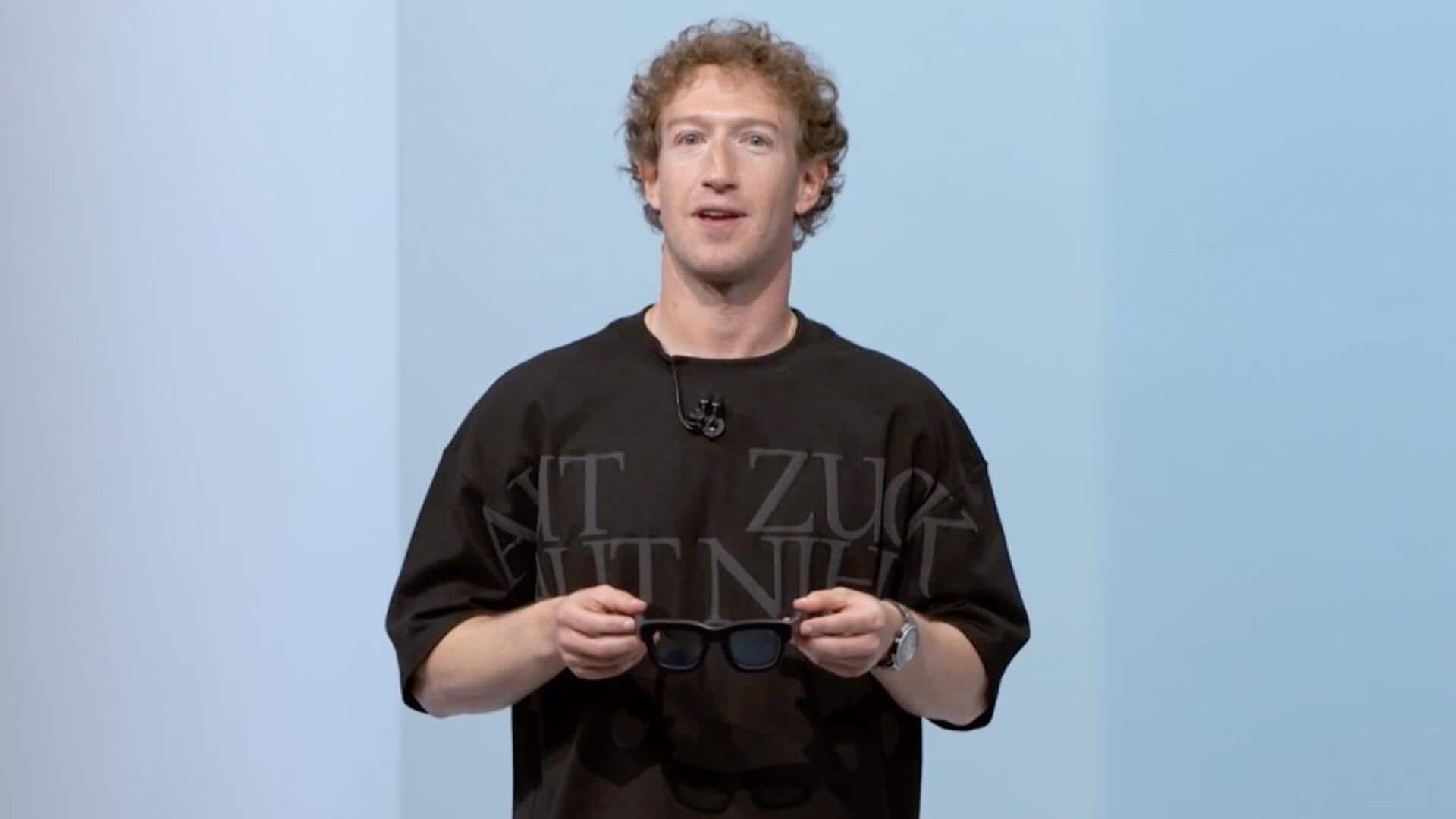
What does 'Aut Zuck Aut Nihil' mean? Zuckerberg's t-shirt decoded
What's the story
Meta CEO Mark Zuckerberg wore a custom t-shirt with a Latin phrase, "aut Zuck aut nihil," when he unveiled Orion, the 'most advanced' AR glasses ever made.
The Latin phrase—translating to "all Zuck or all nothing"—is a modern take on "aut Caesar aut nihil," which means "either a Caesar or nothing," or simply "all or nothing."
This motto was used by Italian Renaissance Prince Cesare Borgia and may have been originally coined by Julius Caesar himself.
Inference
Possible interpretations of the t-shirt message
Zuckerberg described the Orion AR glasses as a "time machine." He stated, "They exist, they are awesome and they are a glimpse of a future that I think is going to be pretty exciting."
Zuckerberg's t-shirt could be interpreted as a sign of his confidence in AR technology and its potential to dominate future computing.
The "all or nothing" message might represent Zuckerberg's dedication to Meta's success, signifying a pivotal moment for the company as it invests heavily in AR.
Tech vision
Zuckerberg's Roman Empire fascination and Meta's AR glasses
Zuckerberg's interest in the Roman Empire is well-documented, with personal milestones such as his honeymoon in Rome and naming his children, August and Aurelia, after Roman emperors Augustus and Marcus Aurelius.
His latest fashion statement aligns with Meta's goal to overcome previous tech industry setbacks and create augmented reality devices for widespread use.
The newly unveiled Orion AR glasses, although not yet available to users, embody Zuckerberg's vision of integrating the virtual world with reality.
Highlights
Orian AR glasses offer holographic displays
Meta's Orion AR glasses feature mini projectors for holographic displays, setting them apart from competitors. Sleeker than previous AR devices, Orion maintains environmental awareness through onboard cameras.
It is powered by contextual and vision AI, meaning the wearbale can perform tasks like recipe generation by glancing at the items in your fridge.
It also offers immersive use cases like multitasking windows, big-screen entertainment, and life-size holograms of people.
Orion will be controlled through a "neural interface" developed by Meta-owned CTRL-Labs.